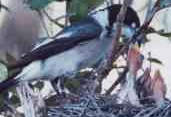Heat Stress in Flying Foxes - Event Report
by Charmaine from Bats Qld
 A little over a year ago we were coming to terms with the death of over 50,000 bats in a heat stress event in SE Queensland. For most of the carers who attended the colonies on that day, this was their first experience with a heat stress event and most were left with feelings of frustration for their lack of knowledge on how to handle an event.
A little over a year ago we were coming to terms with the death of over 50,000 bats in a heat stress event in SE Queensland. For most of the carers who attended the colonies on that day, this was their first experience with a heat stress event and most were left with feelings of frustration for their lack of knowledge on how to handle an event.
Moving on one year and although there has been no improvement in predictions of further heat stress conditions, there has been a vast improvement in the knowledge of most of the bat carer groups in how to work a heat stress event. In September 2014, Bats Qld organized a HSE workshop for all carers at the RSPCA Wacol. In the morning Linda Collins covered the basics of how to identify the different stages of a heat stress and what to do at each of the stages. In the afternoon, Tania Bishop presented a talk on how to treat heat stressed bats. The notes and manuals from these talks are available on http://www.longgrasssystems.com.au/heatstress.html.
It is my sincere hope that all bat care groups will incorporate this new knowledge in both their Rescue and Rehab and their Baby Care Manuals. Unfortunately, on the week-end of the workshop, further heat stress events occurred at the Caboolture colony and in Casino in northern NSW. Bats Qld members attended the Caboolture colony and orphans from both the Caboolture and Casino colonies were raised by Bats Qld members and are currently in crèche with Gabi at Woodford.
Recent reports from CSIRO and other climate change experts (http://www.garnautreview.org.au/index.htm) predict that the number of days hotter than 35 degrees will be dramatically increasing in Queensland which would suggest that heat stress events will become a norm rather than a rare occurrence. Flying foxes, especially Black Flying-Foxes, have not been exposed during their evolution to such high temperatures and the speed of this climate change means that there will probably be no time for evolutionary selection to favour bats that could handle increased temperatures. If this happens, bat care groups and their members will be called on to attend heat stress events on a regular basis. As a group, Bats Qld has made considerable progress towards preparedness for the next event. A core number of our members have been trained and will be able to supervise untrained volunteers at an event. We have stored at Woodford a number of backpack sprayers (which are the first line of action in an event) and water containers and we are currently working on the final draft of the Woodford Colony Plan. Although none of this will prevent a heat stress event, it should go a long way towards reducing the number of bat deaths on the day.
 Every Bats Qld member, vaccinated or non-vaccinated, may be able to help at an event. I was at the Caboolture colony in September and found it was the simple things that caused us problems. On that day, we saved 70 orphans (with another 20 being found during the following 5 days) and we quickly ran out of mummy rolls and wraps for so many babies. We also had a problem of how to keep the babies while waiting for people to collect them and there was the usual problem with water supply.
Every Bats Qld member, vaccinated or non-vaccinated, may be able to help at an event. I was at the Caboolture colony in September and found it was the simple things that caused us problems. On that day, we saved 70 orphans (with another 20 being found during the following 5 days) and we quickly ran out of mummy rolls and wraps for so many babies. We also had a problem of how to keep the babies while waiting for people to collect them and there was the usual problem with water supply.
These were not our only problem but the ones that can be easily solved. On my return home I started collecting 3L milk bottles. These are easy to store and transport and light enough to be carried around within a colony. They also have the advantage of being free so they can be given out without the bother of trying to returning them to their owner at the end of the day. If everyone who arrived at a colony during a heat stress came with a water supply, it would be a great benefit.
The next freebie that I came up with was temporary mummy rolls. I simply cut up old towels to mummy roll size and some old sheets to wrap size (about 45cm square). I wrapped the mummy roll with the wrap and secured with a rubber band. These cost nothing as the towels were worm out and were to be thrown out as were the old sheets. I am aiming at having a hundred ready and if everyone arrived at a colony with some wraps and rolls, we should not waste time cutting up towels during an event. Like the milk bottles, because they cost nothing, they can be handed out with babies when they are collected. The problem that I have not come up with an easy solution is where to put the babies during an event. As the babies come in from the colony, they are triaged and placed in groups of similar ages or medical requirements. Cat carry cages are bulky to fit into an already crowded vehicle and at a pinch will fit six babies only. We need something that can be folded flat and easily transported and I’m hoping that we come up with a solution before next summer.
Anyone interested in being involved helping during a heat stress event, either vaccinated and helping directly with bats or non-vaccinated and working in the support group, can email me to be added to the contact list at c.brayley@optusnet.com.au. ~ -- Charmaine

 del.icio.us
del.icio.us Digg
Digg Facebook
Facebook Google
Google Google+
Google+ LinkedIn
LinkedIn MySpace
MySpace Ping This!
Ping This! SlashDot
SlashDot StumbleUpon
StumbleUpon Twitter
Twitter Yahoo
Yahoo



